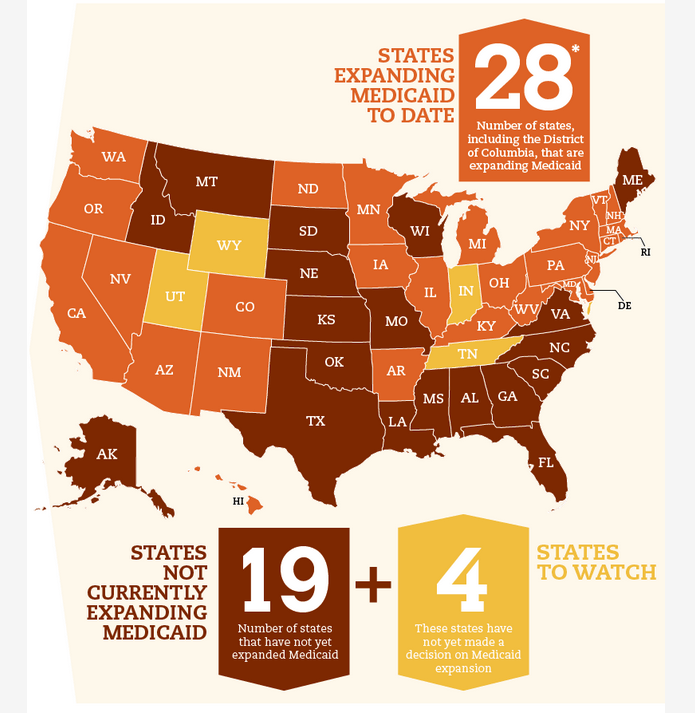Connecting state and local government leaders
Experts: States and cities will face unending and unsustainable budget problems as Washington cuts back its aid.
Services financed by federal, state and local governments are headed for a long downhill slide, even if the nation’s economic recovery has temporarily resuscitated many public-sector budgets.
Experts agreed on this gloomy prognostication during November meetings of the National Academy of Public Administration and its Federal Systems Panel in the nation’s capital.
The consensus view: The conservative mood of the nation today—along with structural budget problems associated with demographic trends—will be squeezing education, welfare, health, infrastructure and other key categories of spending in the years ahead.
And, the scholars said at the meeting, our intergovernmental system is increasingly unable to provide the kind of coordinated and mutual support that could alleviate the advancing pain.
Last month’s elections seemed largely to deliver a smaller-is-better message to politicians and the country. In its wake, federal budgets are unlikely to support current levels of programmatic subventions to states and localities. A conservative message was also delivered in many states, where many politicians supporting lower taxes and spending won against Democrats who defended the status quo.
Political Straws in the Wind
The Republicans’ capture of the U.S. Senate and success in building a larger majority in the House may or may not bring concerted efforts to reduce spending for fiscal 2015, which began Oct. 1. Other issues—health care, immigration, foreign policy, “executive overreach”—likely will take precedence. But the federal government is already on an austerity budget, thanks to the 2011 Budget Control Act and its subsequent “sequester,” and only the Pentagon might hope for some relief from the pain.
Added austerity will play out for the 2016 fiscal year, which begins on Oct. 1 of next year. That budget will be written by the GOP-controlled Budget and Appropriations committees this spring and summer. Domestic “discretionary” spending will suffer most, including the 900 grant programs funneling money to state and local governments.
The long-term decline in domestic discretionary spending by the feds is an important factor in what experts are calling a “crisis” in intergovernmental relations.

Temporarily, the federal stimulus program’s huge increase in grants to state and local governments—some $285 billion—alleviated what would have been debilitating cuts in programs. But, as George Mason University scholar Paul Posner (pictured here) observed, federal largesse rapidly gave way to a wave of austerity arising from concern about exploding federal deficits.
Structure of Crisis
In a detailed presentation from a forthcoming book, Posner sounded the alarm at the NAPA meeting, saying that under current policies, “domestic spending would be cut to the bone.” If the Budget Control Act and its sequester policy remain in effect, non-defense domestic discretionary spending will drop below the lowest level in the modern era in the current fiscal year. As a percentage of GDP, it will decline from 4.4 percent in the 2011 stimulus year to 2.6 percent by the end of this decade.
That’s alarming because federal grants comprised the largest share of state and local government revenue during the stimulus era. In 2010, stimulus-boosted federal grant programs amounted to $624 billion, easily exceeding other large sources of state and local funding: property taxes ($442 billion), sales and gross receipts taxes ($431 billion), general sales taxes ($285 billion) and individual income taxes ($260 billion).
If the Budget Control Act is not amended, domestic discretionary spending will quickly slump below the 3.2 percent of GDP that’s the lowest level of the modern era, Posner’s data show.
States can ill-afford such a decline. While state budgets have recovered along with the economy, spending in 2014 for all 50 states combined is still less than the fiscal 2008 peak after accounting for inflation, according to the National Association of State Budget Officers. And “many states will continue to face difficult budgetary choices in fiscal 2015 and beyond,” according to a recent NASBO paper.
The situation is no better in major U.S. cities, reports a Pew Charitable Trusts study released in mid-November. A significant problem in the 30 cities studied by Pew was a decline in intergovernmental aid. Some 22 of the cities suffered such declines in the 2011-2012 period the report covered. Phoenix alone saw its intergovernmental subventions drop by $200 million. Falling property tax receipts were the other major factor in cities’ budget woes.
The recession and its aftermath cost some 700,000 state and local workers their jobs. Some are coming back, but still, the future is bleak.
“State and local budgets are on an unsustainable course,” Posner and co-author Tim Conlan write in their paper. Government Accountability Office projections, they note, indicate that subnational levels of government face long-term structural deficits that will exceed 3 percent of GDP by 2050. That would be the equivalent of $526 billion today, when GDP amounts to $17.6 trillion. As at the federal level, old-age pensions and health care costs are principally to blame. To achieve operating balances will require the state and local sector to cut costs or raise revenues by more than 14 percent per year through 2060, according to GAO projections.
Polarization of Policy
Disturbing to students of our federal system is sharply increasing polarization that has citizens in roughly half the states experiencing very different approaches to government than the other half.
That states like Arkansas have low taxes matched by low student achievement has long been true. But now, as Republicans have gained control of all levers of power in many states, they have been cutting educational and other services at a much faster pace than is found in other states.

(Graphic courtesy Families USA)
Nineteen states have so far turned down the Medicaid expansion offered, and largely financed, by the Affordable Care Act, and another four are still deciding whether to expand their programs. These states stand to forgo more than $400 billion in federal funds available to them over the 2013-2022 decade, according to estimates by the Urban Institute.
Posner characterizes these decisions as “defiance of fiscal logic and rationality.” The 23 states would save only about $30 billion in matching funds, while depriving millions of people of health-care services. Various states also turned down grants, available under the stimulus program, to extend unemployment benefits and to fund high-speed rail infrastructure improvements.
Posner calculates that 40 percent of Republican governors refused federal money from the Obama administration.
Now, in the wake of the 2014 elections, the number of Republican governors will increase by three to 31 in 2015. As in 2014, 30 state legislatures will have monolithic GOP majorities. Also as in 2014, Republicans will control both governors’ mansions and state legislatures in 23 states. A state-by-state breakdown is found here.
These numbers portend continuing polarization among the states, as Republicans seek to reduce government’s footprint.
On the Democratic side, a few states raised taxes in the past two years to avoid deep service cuts. In California, this didn’t prevent Gov. Jerry Brown from cruising to another term in office in last month’s elections. But in Maryland, voters decisively rejected Lt. Gov. Anthony Brown, the anointed successor to retiring Gov. Martin O’Malley, opting for Republican Larry Hogan, who pledged to roll back the many tax and fee hikes O’Malley’s administration had engineered.
Fend for Yourself
The budget “crisis” would be alleviated, scholars say, if federal, state and local governments cooperatively divided both spending obligations and revenue sources.
But we are far from that now, as federal and state governments shift costs downward while preempting revenue sources. To a much greater extent than European governments, we are stuck with “fend-for-yourself federalism,” Posner and Conlan say. Washington will be less and less able to support state programs in such fields as education, highways, transit, public health and social services, they predict.
And so, Posner concludes, all states and many cities “face wrenching challenges in dealing with their budget challenges without federal assistance or collaboration.”
Timothy B. Clark is editor-at-large at Government Executive and is a fellow and former board member of the National Academy of Public Administration.
(Top image by Tupungato / Shutterstock.com)
NEXT STORY: A New Tool for Tracking Pittsburgh's Bad Air




